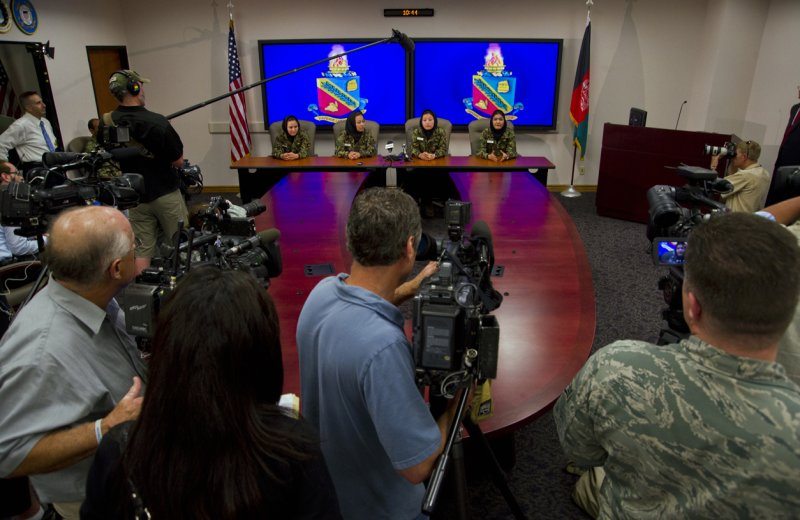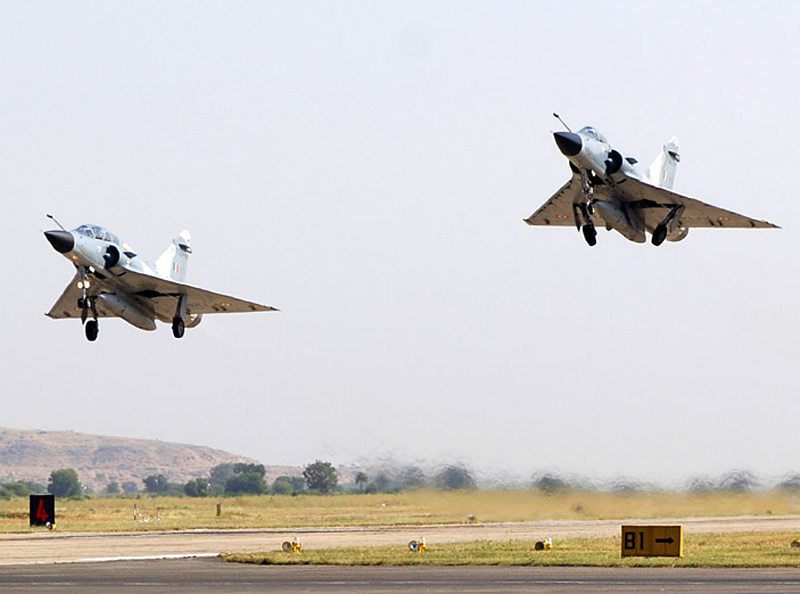Four young Afghan lieutenants are making history by being the first female pilot candidates from their country to attend the Defense Language Institute’s general English course.
“We should show the world that the women of Afghanistan are strong,” said Lt. Sourya Saleh, an Afghan pilot candidate. “We have the opportunity to do everything and continue our job to help our people.”
As part of their training program, the Afghan officers will study Defense Language Institute English language curriculum for six to eight months here, while also learning technical aviation terminology required to succeed during upcoming helicopter pilot training with the U.S. Army at Fort Rucker Ala, according to defense officials.
“What a fantastic opportunity for us and the wing to build coalition and bilateral partnerships across the world,” said Col. Eric Axelbank, the 37th Training Wing commander.
The DLI mission is to build international partnerships by teaching the English language to foreign partners all over the world. The Afghan officers join a 1,100-plus international student body, representing 85 countries.
Students are given the opportunity to learn about the U.S., its military and American culture, and build on English language training and mentoring received by the U.S. military in Afghanistan, according to defense officials.
The baseline for success is communication, Axelbank said. English is the universal aviation language and the foundation by which a common understanding is built.
“There is a huge impact to building partnerships, and learning the English language is a big first step,” Axelbank added.
The female pilots will be facing a challenging curriculum and learning experiences in the form of field trips, sponsorship programs or informal mentoring with U.S. military members, DLI officials said.
Before attending DLI, the Afghan officers completed training at Thunder Lab in Kabul, Afghanistan. The Thunder Lab program immerses top performing, newly-commissioned Afghan Air Force lieutenants into the English language as a primer to DLI.
“The first four Afghan Air Force female lieutenants have worked very hard to get to where they are and have overcome many cultural challenges along the way,” said Lt. Col. Daryl Sassaman, the officer in charge of the Thunder Lab. “Their attendance at DLI is just one more step in their journey to become pilots in the Afghan air force.”
Axelbank said he is confident the DLI program available to the Afghan student pilot candidates will serve as a model for other countries around the world.
“I think this has potentially some wonderful effects for Middle Eastern countries and the world given the training they have had in Afghanistan,” he said. “Knowing the learning program we have here for them, they will be prepared to succeed.”
Afghan officials have chosen to develop Afghanistan’s forces in a new way because they have chosen to partner with the U.S. to train the officers in English and then eventually to learn some of the latest tactics, techniques, and other procedures the U.S. Air Force employs in its daily operations, said Col. Howard Jones, the Defense Language Institute English Language Center commandant.
“This is an example of many that we have in working with other partners,” Jones said. “There are other stories across the world and across many years where other partner nations have asked the U.S. Air Force and Department of Defense to help develop their forces, capabilities, and relations enabling us to affect our national strategy.”
Lt. Mary Sharifyzada, another of the Afghan pilot candidates, said she expects her country will benefit from her training and she plans to share her experiences here with other Afghan women.
“We will tell them that we were the first to do this and we faced many difficult problems, but we solved them and continued it because it is in our interest to serve our country,” Sharifyzada said.
(Capt. Dan Einert contributed to this story)











